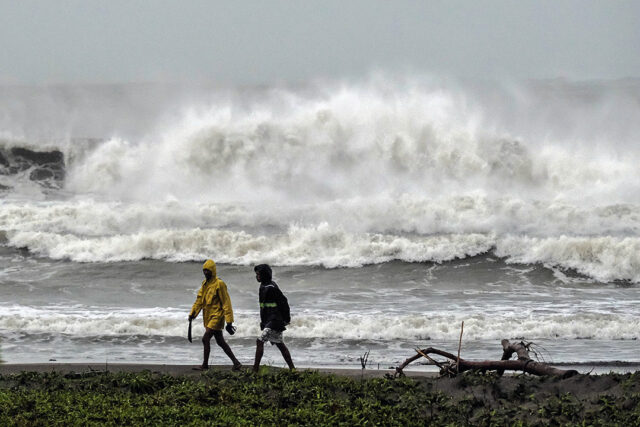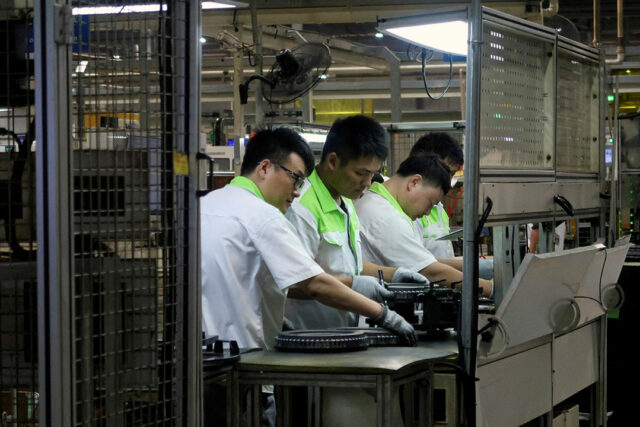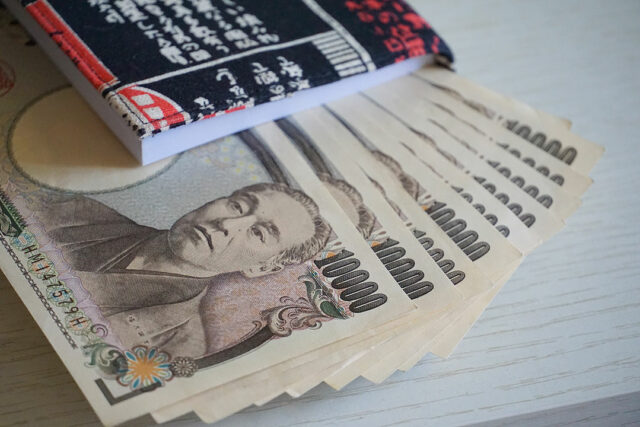BEIJING — Chinese government advisers are recommending that Beijing should maintain an economic growth target of around 5.% for next year, pushing for stronger fiscal stimulus to mitigate the impact of expected U.S. tariff hikes on the country’s exports.
The ambition to sustain a growth pace that seemed difficult to reach throughout 2024, if confirmed, would surprise financial markets betting on a gradual slowdown in the world’s second-largest economy as trade tensions intensify.
Four of the six advisers who spoke with Reuters favor a 2025 target of around 5%. One adviser recommends a goal of “above 4%” and another suggests a 4.5-5% range. A Reuters poll this week predicted China will grow 4.5% next year, but also tipped that tariffs could impact growth by up to 1 percentage point.
The advisers, who do not participate in decision-making, will submit their proposals to the closed-door annual Central Economic Work Conference next month, when top leaders discuss policies and goals for next year.
The target, one of the most closely watched indicators globally for clues of Beijing’s near-term policy intentions, will not be officially announced until an annual parliament meeting in March.
The recommendations of the advisers are considered by policy makers in the final decision-making process. The most popular view among the advisers is usually adopted although it is not always the case. Any plans could still change before the legislative session.
Most advisers commented on condition of anonymity as they were not authorized to speak to the media.
Holding lofty growth goals in the face of threatened tariffs in excess of 60% on Chinese goods imports from incoming US President Donald Trump suggests Beijing is ready to spend big, particularly if it cannot negotiate lower levies or delay them.
“It’s entirely possible to offset the impact of Trump’s tariffs on China’s exports by further expanding domestic demand,” said Yu Yongding, one of the advisers and a government economist who advocates for a roughly 5% goal.
“We should adopt stronger fiscal policy next year,” said Yu, adding the budget deficit “should definitely exceed” this year’s planned level of 3% of gross domestic product (GDP).
Some economists have urged Beijing to ditch or adopt lower growth targets to reduce its reliance on stimulus, which has fuelled property bubbles and huge local government debts. But advocates for ambitious targets argue they are crucial for safeguarding China’s global stature, national security, and social stability.
President Xi Jinping’s vision of “Chinese-style modernization” envisages doubling the size of the economy by 2035 from 2020 levels, potentially surpassing that of the United States. Economists outside China do not believe that goal is realistic, but it still influences domestic policy discussion.
“To meet the 2035 goals, we need to achieve economic growth of around 5% in 2025,” said a second government adviser.
It is not known how many such proposals the government receives.
VULNERABLE EXPORTS
International Monetary Fund Managing Director Kristalina Georgieva warned last month that China’s growth could slow “way below 4%” unless it shifts from an export- and investment-led economic model to one driven by consumer demand.
The tariff threat has rattled China’s industrial complex, which sells goods worth more than $400 billion annually to the United States. Many manufacturers have been shifting production abroad to escape tariffs.
Yu downplayed Mr. Trump’s threat, noting that China’s net exports’ GDP contribution is minor. They accounted for 2.2% of GDP in 2023 although gross exports made up close to 20% of total economic output, official data show.
Other economists argue that industrial output, revenues, investment and jobs depend heavily on external demand and that additional trade barriers could exacerbate deflationary pressures and growth headwinds.
“If China’s exports take a hit and cannot be offset by rising domestic demand, deflationary pressures will intensify,” said the adviser recommending a target of “above 4%.”
The adviser who proposed 4.5-5% said: “The pressure on the economy will be even greater next year. Our exports could be greatly affected.”
MORE STIMULUS?
This month, China unveiled a 10 trillion yuan ($1.4 trillion) debt package to ease municipal financing strains, but refrained from direct fiscal stimulus. Analysts say Beijing may want to keep the powder dry until Mr. Trump makes his first move.
Finance Minister Lan Foan said more stimulus measures were in the pipeline, without giving details on size or timing.
Government advisers say China’s budget deficit could spike to 3.5-4% of GDP next year and more special treasury bonds, typically not included in annual budgets, could be issued to fund infrastructure and other investment.
They say consumer-focused policies could include stronger financial support for low-income residents and expanding a subsidy scheme introduced this year to boost purchases of appliances, cars and other goods. Large scale cash voucher handouts are unlikely, the advisers say.
But they also urge officials to push ahead with promised tax, welfare and other policy changes to address structural imbalances.
“If reforms stall and we rely solely on policy stimulus, it will not be sustainable in the long run,” said the most conservative adviser. — Reuters













